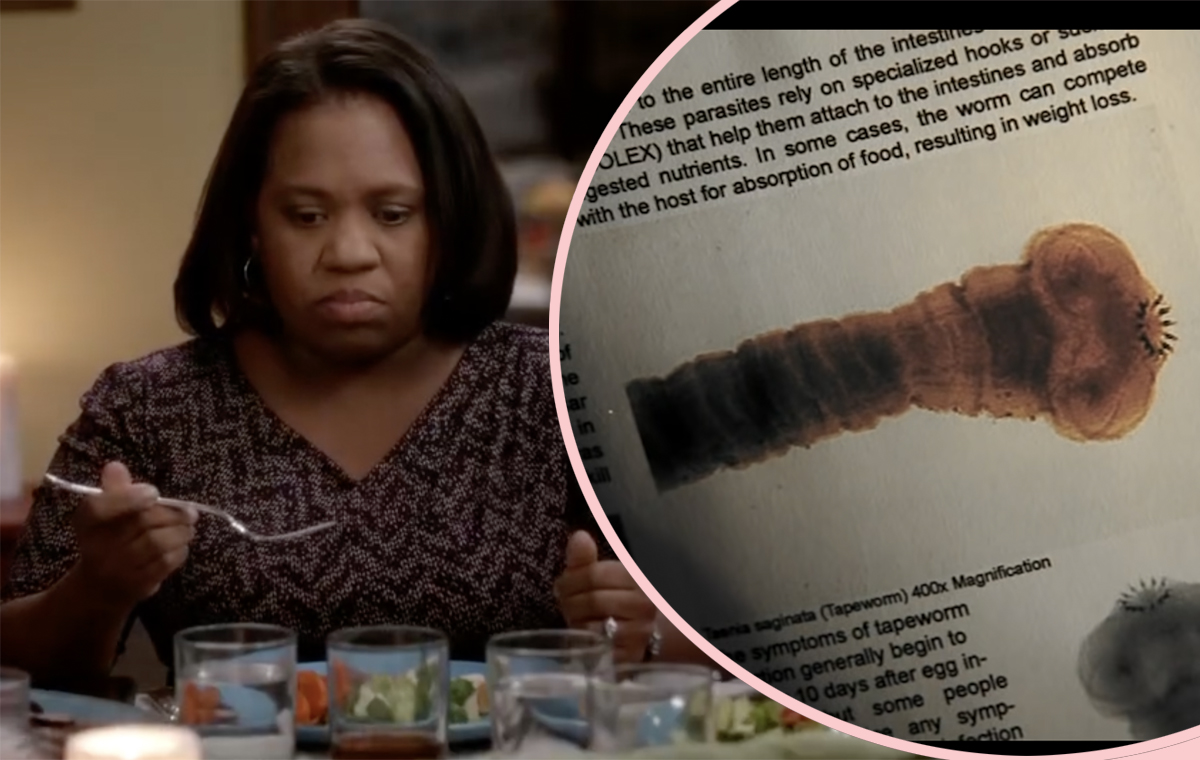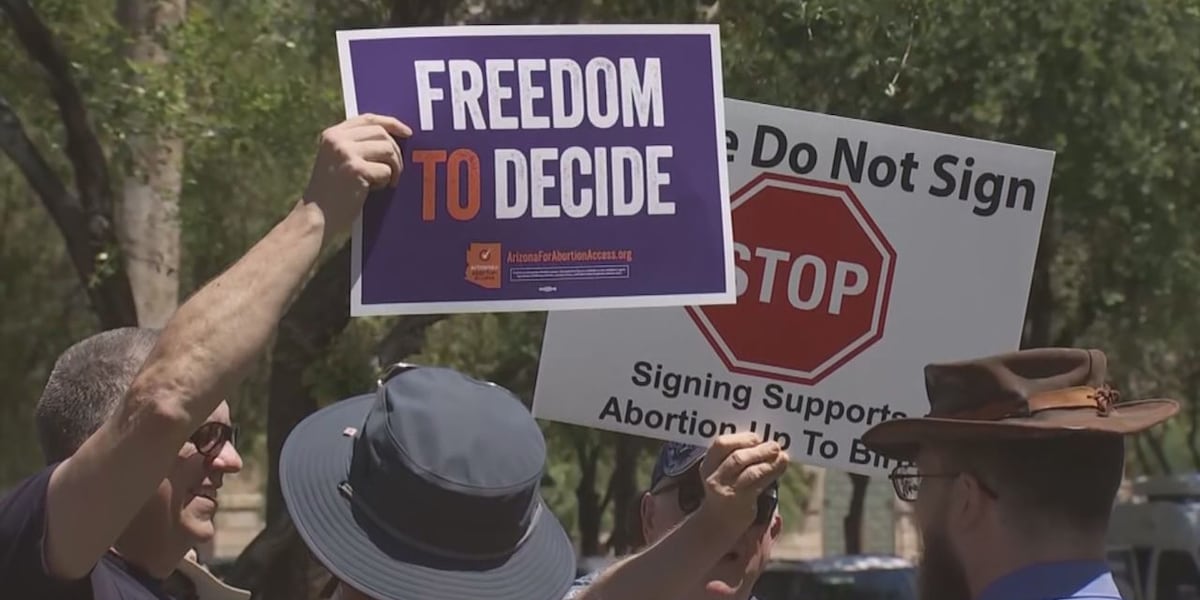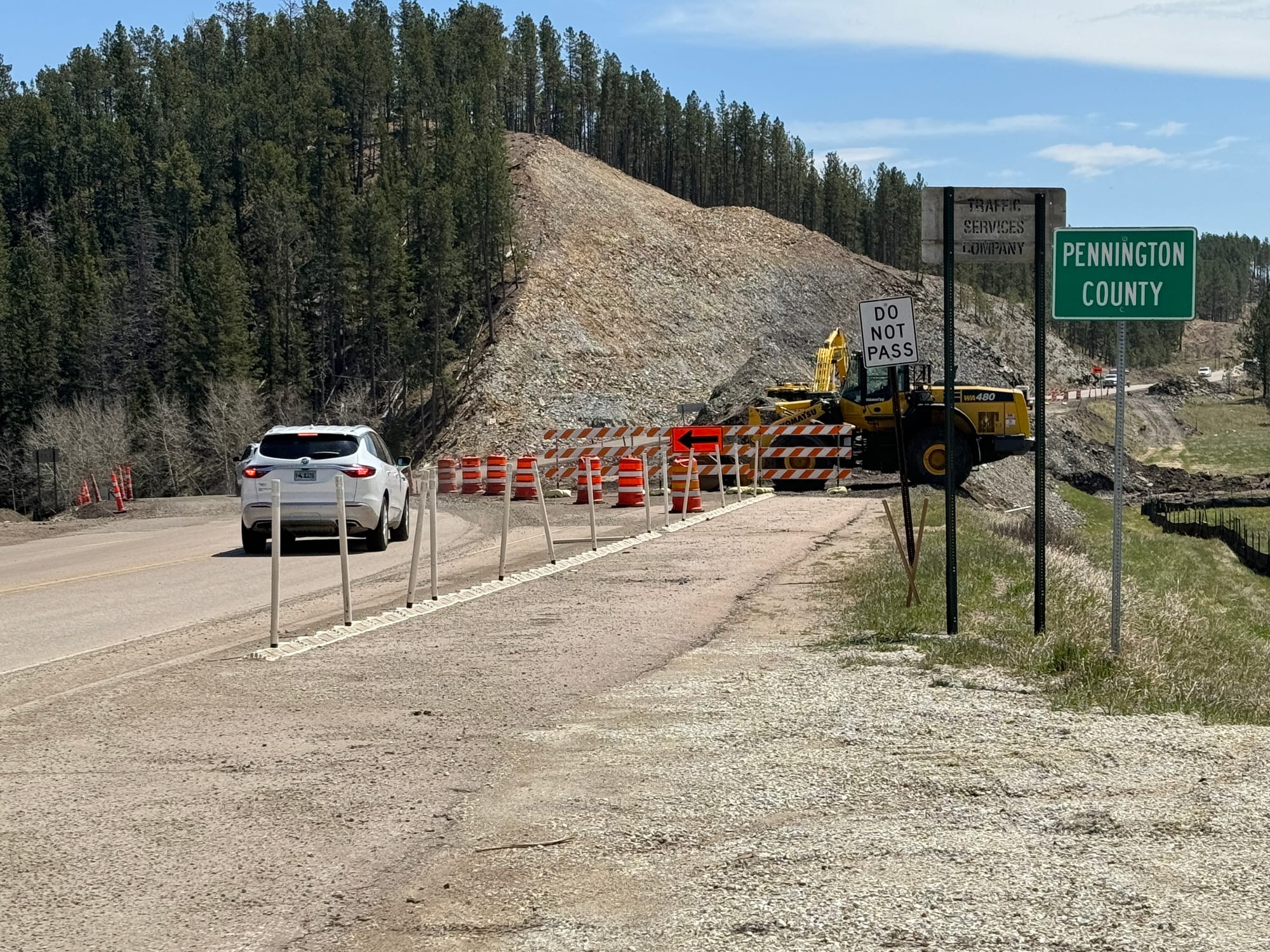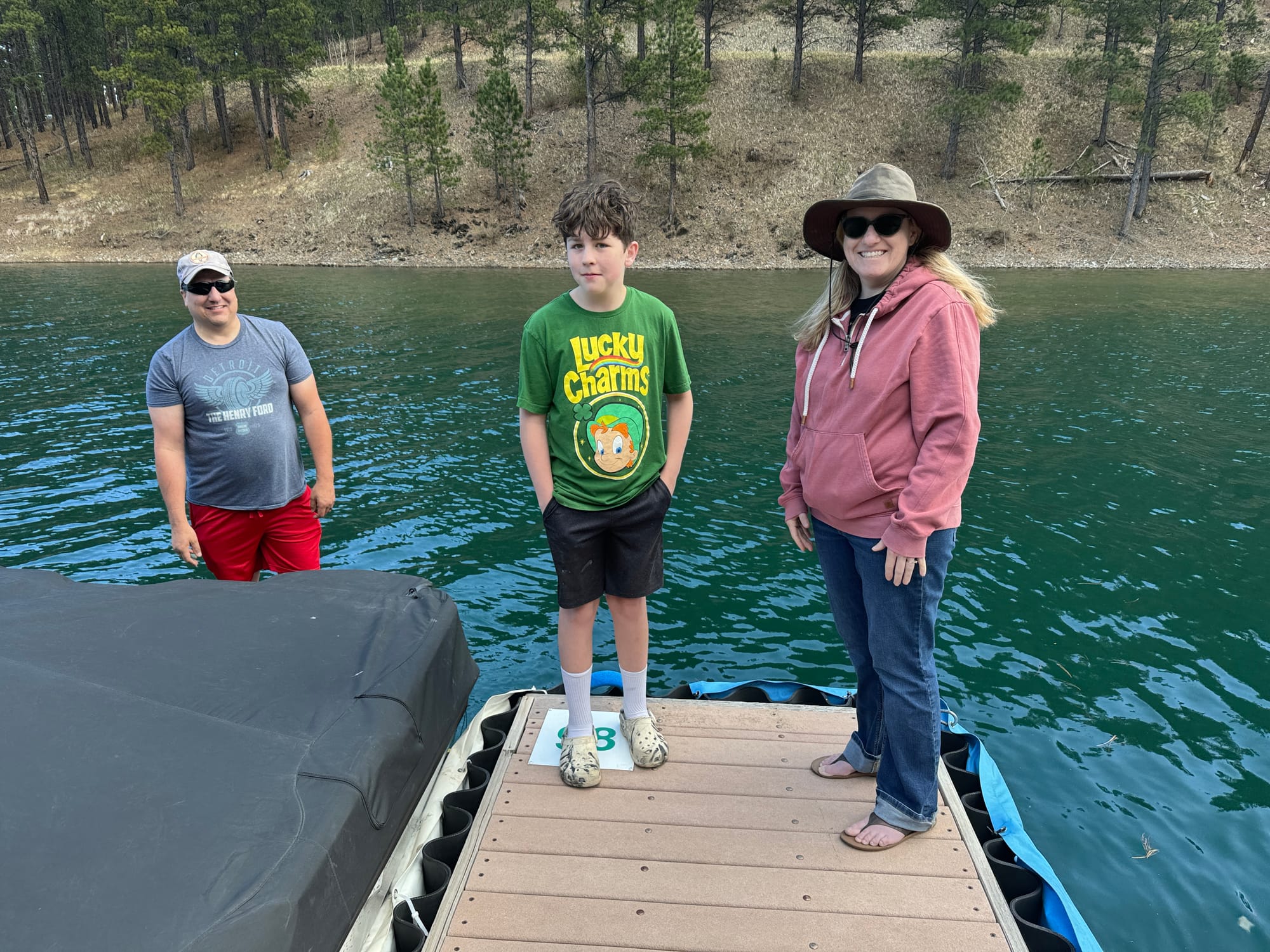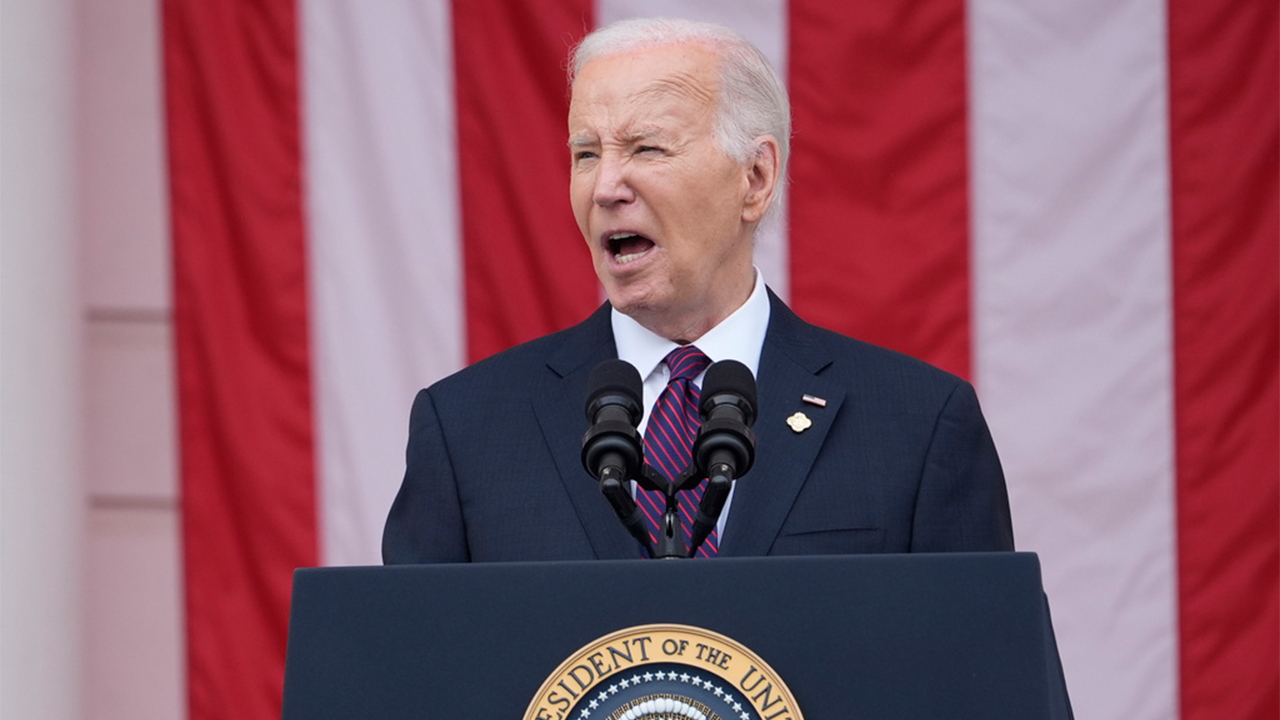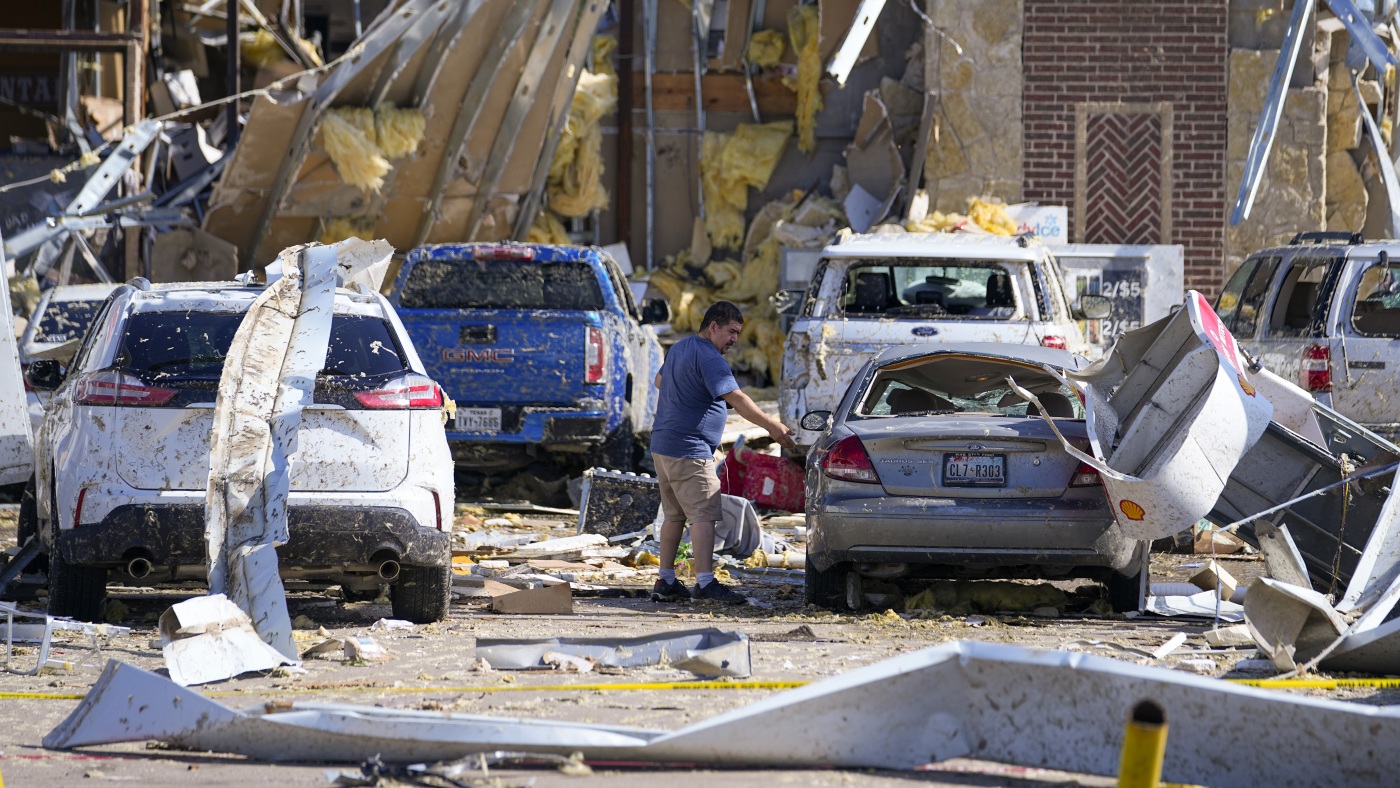South Dakota
Trying to beat hunger in South Dakota
/cloudfront-us-east-1.images.arcpublishing.com/gray/CL6FDD6TQRFVPP656AYZKOUX2Q.jpg)
RAPID CITY, S.D. (KEVN) – A food desert is defined as an urban area with limited access to a grocery store, and homes with no vehicle access that are more than a mile away from a supermarket.
31 out of 66 counties in the Mount Rushmore State identify as a food desert according to a report by South Dakota State University.
“Not everybody has equal access to grocery stores, it’s a huge problem of ours. So, I think that is really reflective in the food insecurity numbers we are seeing right now,” said Kimberly Wallace, volunteer coordinator, Feeding South Dakota.
“Well part of it is we’re just a rural population and we really have two big geographic centers, one on both ends of the state, so, I think that has a lot to do with it,” said Lysa Allison, executive director, Cornerstone Rescue Mission.
Last year Feeding South Dakota was able to distribute a total of 12.9 million pounds of food in all 66 counties in the state.
When the pandemic hit, Feeding South Dakota started a distribution system bringing food trucks to different communities.
“It also took away some of the barriers to access, you know it’s difficult if you don’t have a vehicle to pick up food at a food pantry. Well, if we’re in your neighborhood you can just walk over, and we’ll help you bring your food back to your house,” said Wallace.
For people who may not have access to a kitchen or who are homeless, various non-profits offer free meals to people who need them.
For more than 40 years, Cornerstone Rescue Mission has been one of the only soup kitchens located in western South Dakota offering both hot meals and a place to reside.
For more information on Cornerstone, click here.
For more information on Feeding South Dakota, click here.
Copyright 2023 KOTA. All rights reserved.

South Dakota
Relays at State Track a sweeping success for Sioux Falls Christian girls

SIOUX FALLS, S.D. (Dakota News Now) – In South Dakota high school track and field teamwork has made the dream work for the Sioux Falls Christian girls who, for the second straight year, pulled off an impressive feat on their way to a third consecutive State A team championship.
During last weekend’s SDHSAA State Meet the Chargers won all five relay races, taking the 4×800 and Sprint Medley on Thursday before capturing the 4×200, 4×100 and 4×400 relays on Saturday.
It’s the second consecutive year that Sioux Falls Christian has swept the relay races, helping them increase their team point total from last year by four to 130.5, and put them 75 points ahead of runner up Lennox.
No matter who graduates or is running, the Chargers say they’re always chasing greatness, and each other, while building towards each championship finish.
“One of the keys to having those strong relays is having a team with depth. And we’ve got a great group of coaches that make our track and field team a place that kids want to be a part of and, when you have a lot of kids on your team, you’re able to put together great relays.” Sioux Falls Christian Head Coach Luke VanderLeest says.
”A championship, like that is the goal, but that’s not something to be stressed throughout the season. Just getting better every day, each step at a time and our coaches do a really good job at taking the weight off. This doesn’t just come from a one person team, this comes from all of us.” Sioux Falls Christian Junior Anna Vyn says.
Copyright 2024 Dakota News Now. All rights reserved.
South Dakota
A bipartisan push to make air travel easier for new parents packing breast milk and formula • South Dakota Searchlight

As the summer travel season approaches, new parents may be navigating airports with their babies — and the complexities of keeping them fed. Despite federal guidelines for airport agents laying out how to treat nursing moms, stories about problem encounters with security sometimes go viral.
In 2023, actress and singer Keke Palmer said she was at Houston airport when she faced threats to throw out her 16 ounces of breast milk. A year earlier, engineer and science TV host Emily Calandrelli said U.S. Transportation Security Administration officers escorted her out of line and made her check her partially thawed ice packs, which are used to keep breast milk cool.
“It was a very traumatizing experience, and it also didn’t align with what the TSA policies were, which state that you’re allowed to have them for medically necessary purposes,” Calandrelli told States Newsroom.
In May 2022, she went on her first work trip away from her 10-week-old baby and was traveling from Los Angeles to Washington, D.C. Calandrelli planned on pumping after going through security at LAX, but TSA officers drilled her with questions about what the ice packs were for and said it wouldn’t have been an issue if her breast milk was already pumped.
“I spoke to three different males who worked at TSA, and I requested to speak to a woman but wasn’t able to,” she said.
Five-year FAA bill clears U.S. House, boosting flights into Washington, D.C.
Like Palmer, she shared the experience with her legions of social media followers. Calandrelli said the agency later apologized. TSA issued a statement shortly after the incident: “Our employees go through regular training to effectively engage and screen diverse traveler populations, including those who are breastfeeding and/or traveling with breast milk.”
Both women’s experiences violate TSA guidelines: formula, breast milk, toddler drinks and baby food are allowed on planes and carry-ons in quantities greater than 3.4 ounces. Breast milk, formula and ice packs — along with other cooling accessories — are considered medically necessary. Passengers are advised to let TSA officers know they’re carrying these items when arriving at airport security.
Even though these protections exist, many lactating parents still encounter problems during air travel, and these issues carry physical and emotional side effects, according to Tina Sherman, a doula and interim executive director at the U.S. Breastfeeding Committee.
“Lactating parents have to pump on a fairly regular basis to be able to continue to keep up their supply,” Sherman said.
When they can’t express milk or that cycle is interrupted, mothers experience pain or breast leaks, she said. In some cases, long delays in pumping can lead to mastitis — an infection that causes swelling in the breasts and cracked nipples. Emotionally, being prevented or delayed from expressing milk can make parents feel anxious, embarrassed and stressed, Sherman said.
Calandrelli’s plight two years ago led her to reach out to her local California congresswoman. U.S. Democratic Rep. Katie Porter first introduced legislation to strengthen existing protections for breastfeeding parents in August 2022.
“You have to have clear instructions and clear rules, and have people follow them in order for moms to be able to meet the standards,” Porter said. “There’s a lot of obstacles to breastfeeding. There’s a lot of challenges to feeding a baby and traveling with a baby.”
The Bottles and Breastfeeding Equipment Screening (BABES) Enhancement Act would require “hygienic handling of breast milk and baby formula” by TSA officers and private security companies. Porter’s bill would direct airport officials to “minimize the risk for contamination” of breast milk, formula and infant drinks, along with ice or freezer packs and related cooling accessories.
Under the proposal, the agency must consult with maternal health organizations — March of Dimes, Association of Maternal and Child Health Programs, American College of Obstetricians and Gynecologists, and the Society for Maternal-Fetal Medicine — to determine what policies and regulations need to be updated as pumping technology and best practices for breast milk storage evolve, she said.
BABES Act is an update to a 2016 law that required TSA training on special screening procedures for nursing parents. The original law also made it legal to carry larger amounts of breast milk, formula and infant drink — juice or purified water — in airports and on planes.
Reps. Maria Elvira Salazar, a Florida Republican, and Eric Swalwell, a California Democrat, are the lead co-sponsors in the House. Democratic Sens. Tammy Duckworth of Illinois and Mazie Hirono of Hawaii, along with GOP Sens. Steve Daines of Montana and Ted Cruz of Texas sponsored the bill in the upper chamber.
The bipartisan bill didn’t go anywhere last session, but Porter reintroduced the proposal. She said the bill is set to be heard in the Senate Commerce, Science and Transportation Committee soon.
As a mother of three, Porter is acutely familiar with the problems that come with traveling with infants. Her children are adolescents and teens now, but when they were babies, lactation stations in airports were uncommon. She said a flight attendant once told her to stop nursing her baby while the plane was still on the ground. Porter said she was angry and scared, but mostly “worried about my baby, who was hungry.”
As for her bill, she recognizes that TSA agents have a hard job. But the BABES Act will help them “have clear rules and better training so that they’re not put in challenging situations when they’re dealing with frustrated parents,” she said.
Making travel for lactating parents easier could chip away at larger stigma about breastfeeding, advocates said. More than 80% of babies are breastfed in infancy, and 58% are still getting some breast milk by the time they’re 6-months-old, according to the U.S. Centers for Disease Control and Prevention.
Still, earlier this month, an ad for lactation cookies featuring a cooking star’s covered breasts and pregnant belly was temporarily removed from a Times Square billboard, according to The New York Times.
“Normalizing breastfeeding and lactation is really critical to families being able to meet their breastfeeding goals,” Sherman said.
GET THE MORNING HEADLINES DELIVERED TO YOUR INBOX
South Dakota
Black Hills highway closure to upend summer holiday traffic
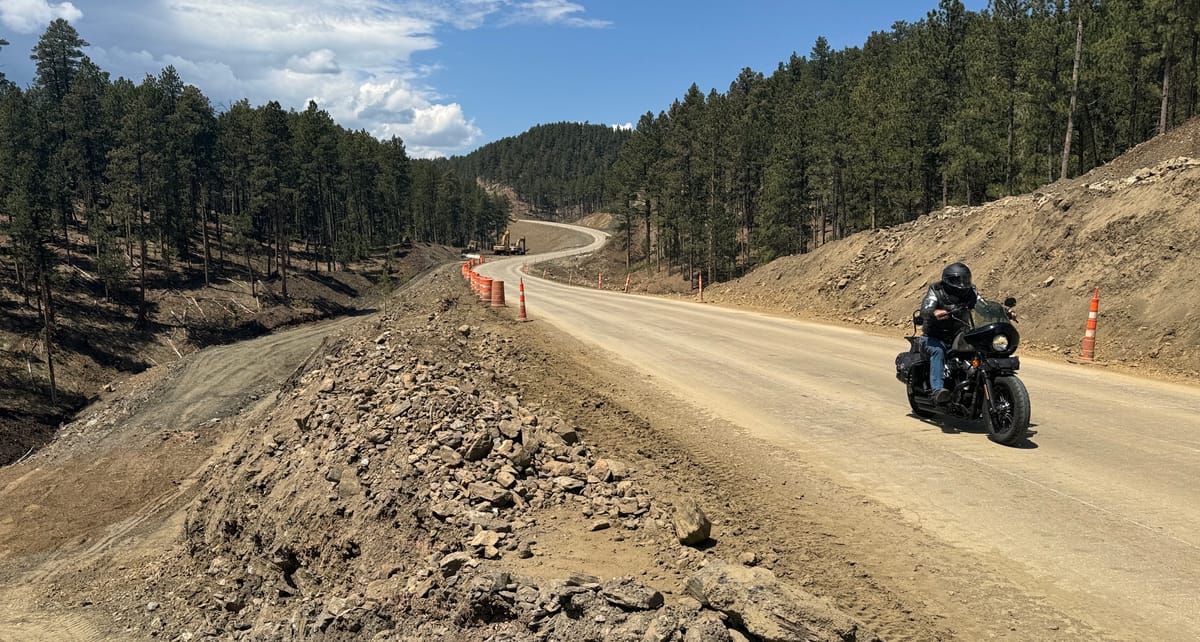
PACTOLA RESERVOIR, S.D. – Angie Weaver, who co-owns the Pactola Marina in the Black Hills, remains hopeful that the full closure of U.S. 385 won’t sink her summer revenues that are critical to remaining profitable for the entire year.
U.S. 385 is the only north-south highway through the central Black Hills and the only route people can take to get to Pactola Reservoir and the marina.
“It’s going to be a weird year for us, and I’m looking forward to it being over,” Weaver said. “All we can do at this point is let customers know about the construction and hope for the best.”
The full closure of the highway just north of the reservoir began on May 19 and will remain closed until July 12, messing up traffic in the tourism-dominated region over both the Memorial Day and July 4 holidays.
The South Dakota Department of Transportation has embarked on a $72 million project to rebuild 15 miles of the highway, which is a scenic drive but one that also has a high rate of crashes and fatalities.
The closure will disrupt any motorist driving between Hill City on the south and the Lead-Deadwood area on the north. The hour-long, more than 50-mile official detour will require people to drive through Rapid City to get around the highway closure near Pactola.
The two-lane highway provides access to Pactola Reservoir and Sheridan Lake. The road is also a pipeline to Mount Rushmore National Memorial and Crazy Horse Memorial and helps fuel a regional tourism industry that brought $2 billion in revenue to South Dakota in 2021.
In all, the project will include five separate complete closures of the winding two-lane highway that flows amid scenic lakes, rock outcroppings and dramatic ridges.
“This construction goes through 2027, so it’s gonna be a long process,” Weaver said. “But this year, for us, is going to be the biggest year in terms of affecting our business.”
So far, so good at marina
Like other business owners in the Black Hills, Weaver and marina partner Dan Fisher have tried to get ahead of the road closure to keep customers happy and coming back.
The pair rents boats and kayaks, sells snacks and supplies and has 200 boat slip rentals, about half of which are on the north side of the reservoir where the entrance road will be closed for a while in May and June. During that time, they have agreed to use a boat to ferry people from the south marina to the north marina so slip renters can still access their boats.
Weaver was heartened to see a solid pre-booking of boat rentals for the Independence Day holiday, typically her busiest time of the summer, despite the fact U.S. 385 will be completely closed during that period.
“That’s a whole month-and-a-half that our renters have to drive an extra hour to get to us,” she said, adding they have posted notice of the pending road closure on their website and in confirmation emails sent to renters.
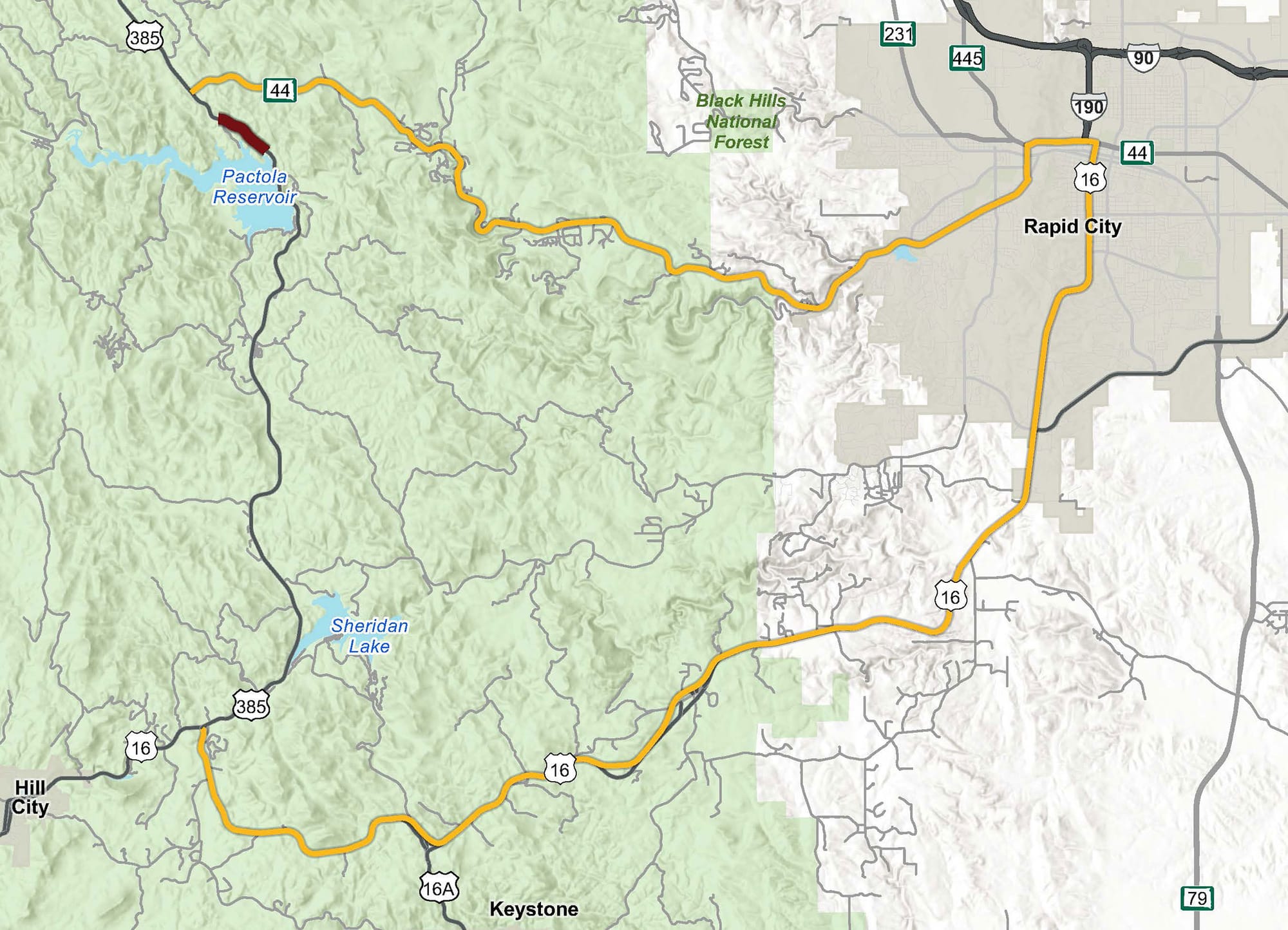
DOT: New highway will be safer
The South Dakota Department of Transportation issued a press release on May 13 that spelled out the closure time frames and stated that while the road will be fully blocked, temporary access to the Pactola north boat ramp will be available on weekends and on Memorial Day.
The overall construction project will include widening road shoulders, smoothing out sharp curves and adding turn lanes to make the road safer. In the five-year period from 2018-2022, 187 crashes were reported in the area now under construction, with four fatalities and 57 injuries. A third of those wrecks and most of the deaths occurred when motorists left the roadway, which in spots is flanked by deep ravines or craggy rocks.
DOT plans to clear trees, blast rock, enact lane closures with use of pilot cars and close the highway completely at five separate locations for up to months at a time. Tree-clearing began in November and in recent weeks, a 15-minute pilot car delay has been in place north of Highway 44. The state will open the road fully during certain high-traffic times, including for the Sturgis rally in August.
The state has created a website to provide project information and updates. Prior to the start of the project, DOT officials held a series of public meetings to inform the public about the need for the construction.
“Complete closures were deemed necessary for the safety of the traveling public and efficiency of the project due to the large amount of material being blasted and moved throughout the closure areas,” DOT said in its May 13 release.
However, Weaver and some other business owners have told News Watch that they weren’t fully satisfied with the DOT’s approach to the project and an overall unwillingness to listen to ideas or accommodate the needs of residents.
“There’s a group of us small business owners in the area that also had a meeting with them, and it felt more like an informative meeting,” she said. “Instead of a, ‘Hey, what are some suggestions,’ approach, and ‘What do you guys need from us,’ there was none of that.”
But Weaver insisted that in the end, it will all be worth it to have a safer highway through the scenic central Black Hills region.
“It’s going to be a great road, and I know they’re going to do a really great job,” she said.
Law enforcement taking steps toward safety
Pennington County Sheriff Lt. David Switzer told News Watch that his agency is working closely with the state local fire departments, the Highway Patrol, and the Game, Fish and Parks Department to coordinate emergency response efforts during the highway closures.
“We’re aware that when there are pilot cars running up there or a full closure, there’s going to be significant delays,” he said.
The sheriff’s office has realigned its patrol “beats” and will have more deputies in the area to respond efficiently to incidents to emergencies on both sides of the road closure, Switzer said.
“There’s going to be a point where they’re going to break up the road because they have to remove a big chunk of it, so you have to adjust your resources to respond to that,” he said.
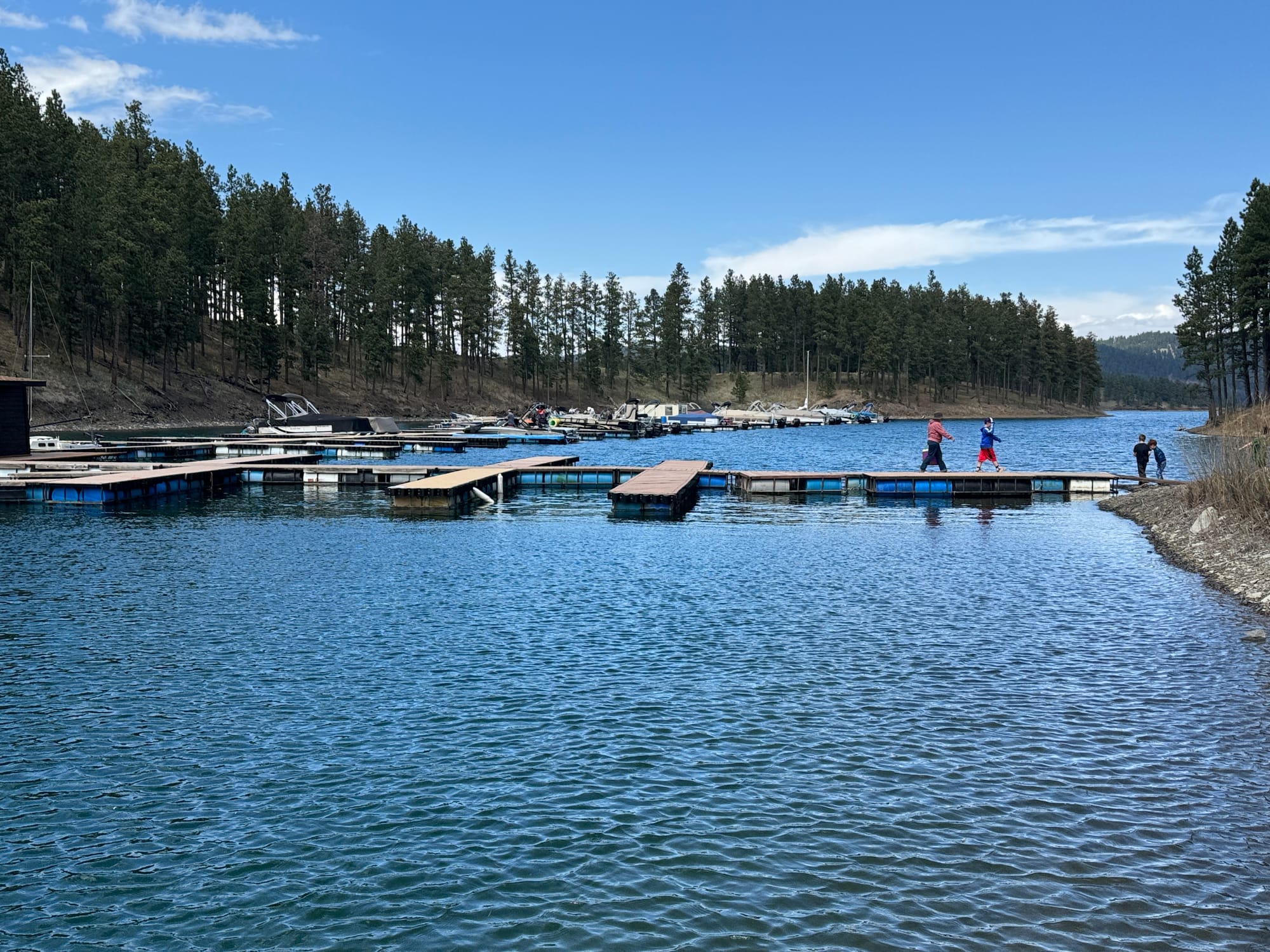
In advance of the full closure of U.S. 385, authorities have posted a boat in a slip at the north Pactola marina to respond to lake emergencies more quickly by not having to trailer a rescue boat through a road closure or construction zone.
“If we have any emergency at the swim beach or the marina or any of the campgrounds close to the boat ramps, we’ll be able to quickly get to a boat there to respond,” said Switzer, who also serves with the nearby Johnson Siding Volunteer Fire Department.
Switzer’s big advice to motorists is to plan ahead, be patient and follow signage to avoid accidents or injuries.
“Don’t drive around road closure signs,” he said. “Follow the detours and be patient because the worst thing you can do is got stuck in a construction zone where there is no road.”
Boater sees detour as minor annoyance
On a recent Sunday, Jeff Woods of Black Hawk secured his family’s boat at their rented slip at the Pactola Marina after going for one of their frequent joy rides.
Woods said the highway closure will cost him about 20 minutes in extra travel time to get to the marina via the southern detour. Woods said he will take Sheridan Lake Road on the south end and shave off distance from the official detour route that takes drivers on U.S. Highway 16 through Rapid City and then back to U.S. 385.
Woods said the road blockage will not stop his family from using their boat or visiting their nearby cabin as often as usual this summer.
“It makes it more of a hassle,” Woods said. “But it’s really just more of an annoyance than anything else.”
This story was produced by South Dakota News Watch, a nonpartisan, nonprofit news organization. Read more in-depth stories at sdnewswatch.org and sign up for an email every few days to get stories as soon as they’re published. Contact Bart Pfankuch at bart.pfankuch@sdnewswatch.org.
-

 Movie Reviews1 week ago
Movie Reviews1 week ago‘The Substance’ Review: An Excellent Demi Moore Helps Sustain Coralie Fargeat’s Stylish but Redundant Body Horror
-

 News1 week ago
News1 week agoVideo: A Student Protester Facing Disciplinary Action Has ‘No Regrets’
-

 Movie Reviews1 week ago
Movie Reviews1 week ago‘Rumours’ Review: Cate Blanchett and Alicia Vikander Play Clueless World Leaders in Guy Maddin’s Very Funny, Truly Silly Dark Comedy
-

 Movie Reviews1 week ago
Movie Reviews1 week ago‘Blue Sun Palace’ Review: An Intimate, Affecting and Dogma-Free Portrait of Chinese Immigrants in Working-Class New York
-

 World1 week ago
World1 week agoPanic in Bishkek: Why were Pakistani students attacked in Kyrgyzstan?
-

 Culture1 week ago
Culture1 week agoFrom Dairy Daddies to Trash Pandas: How branding creates fans for lower-league baseball teams
-

 World1 week ago
World1 week agoRussian court seizes two European banks’ assets amid Western sanctions
-

 Politics7 days ago
Politics7 days agoAnti-Israel agitators interrupt Blinken Senate testimony, hauled out by Capitol police
